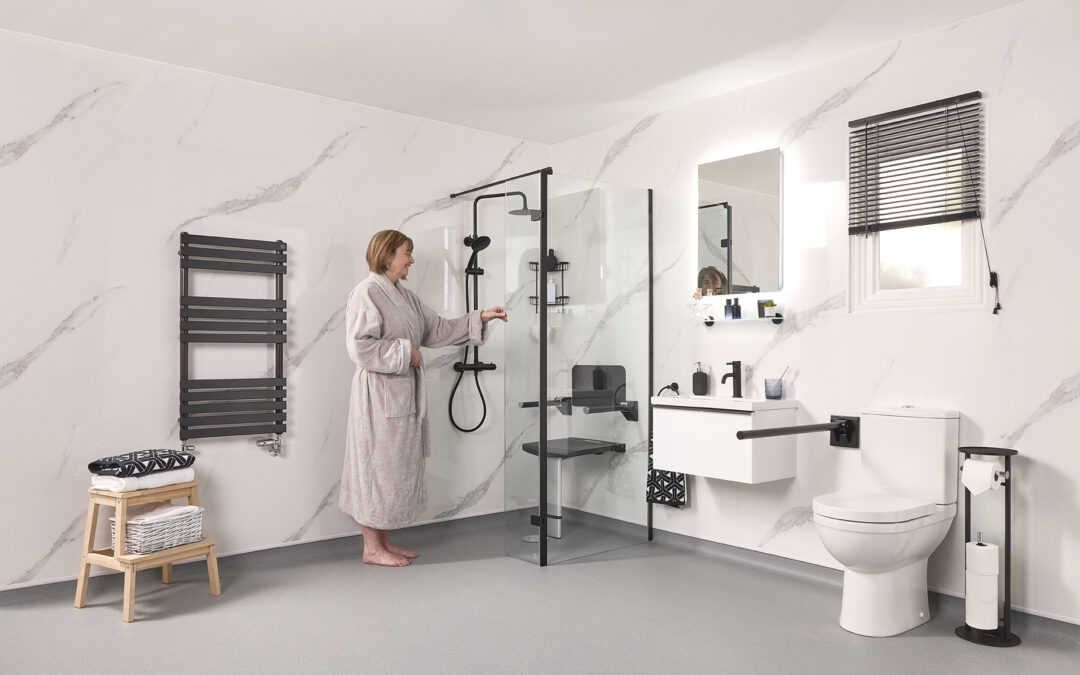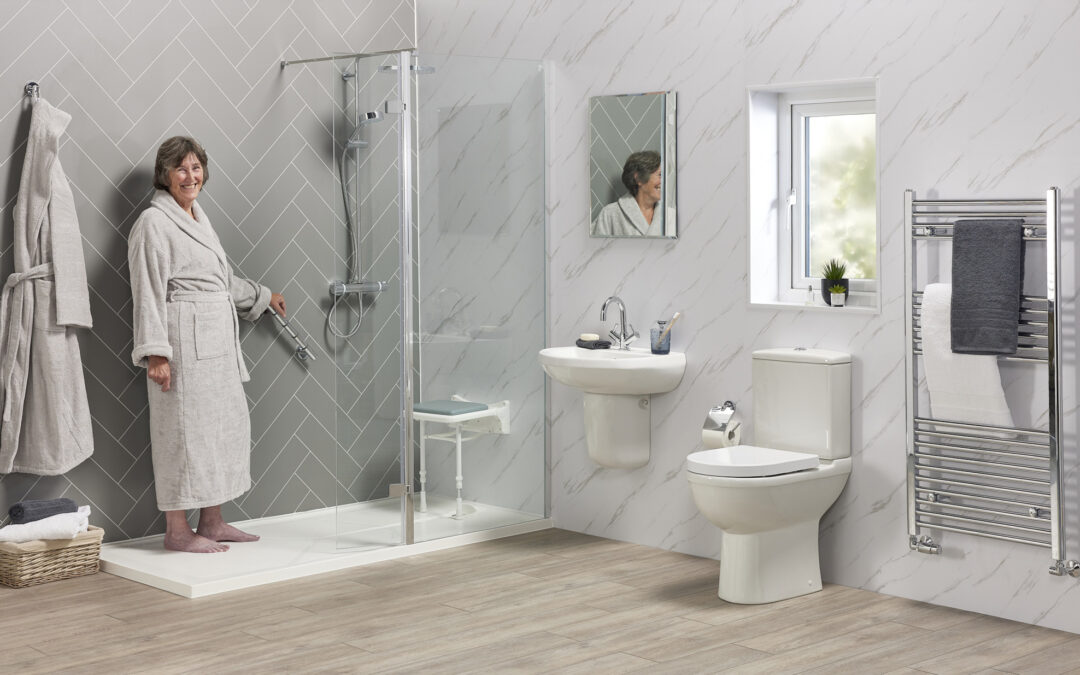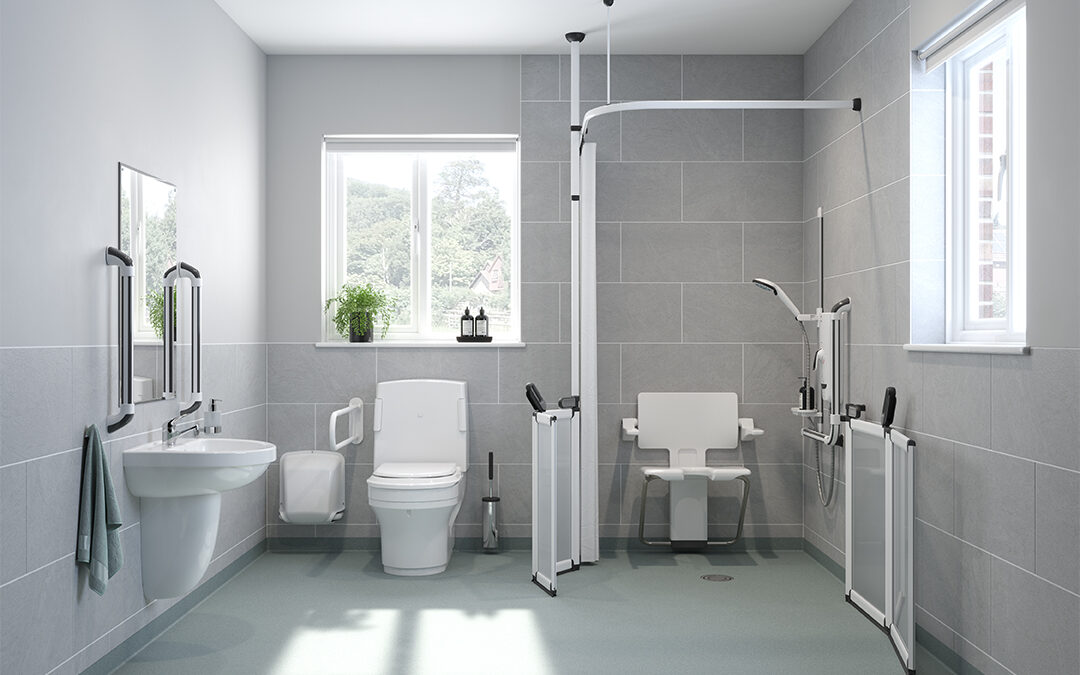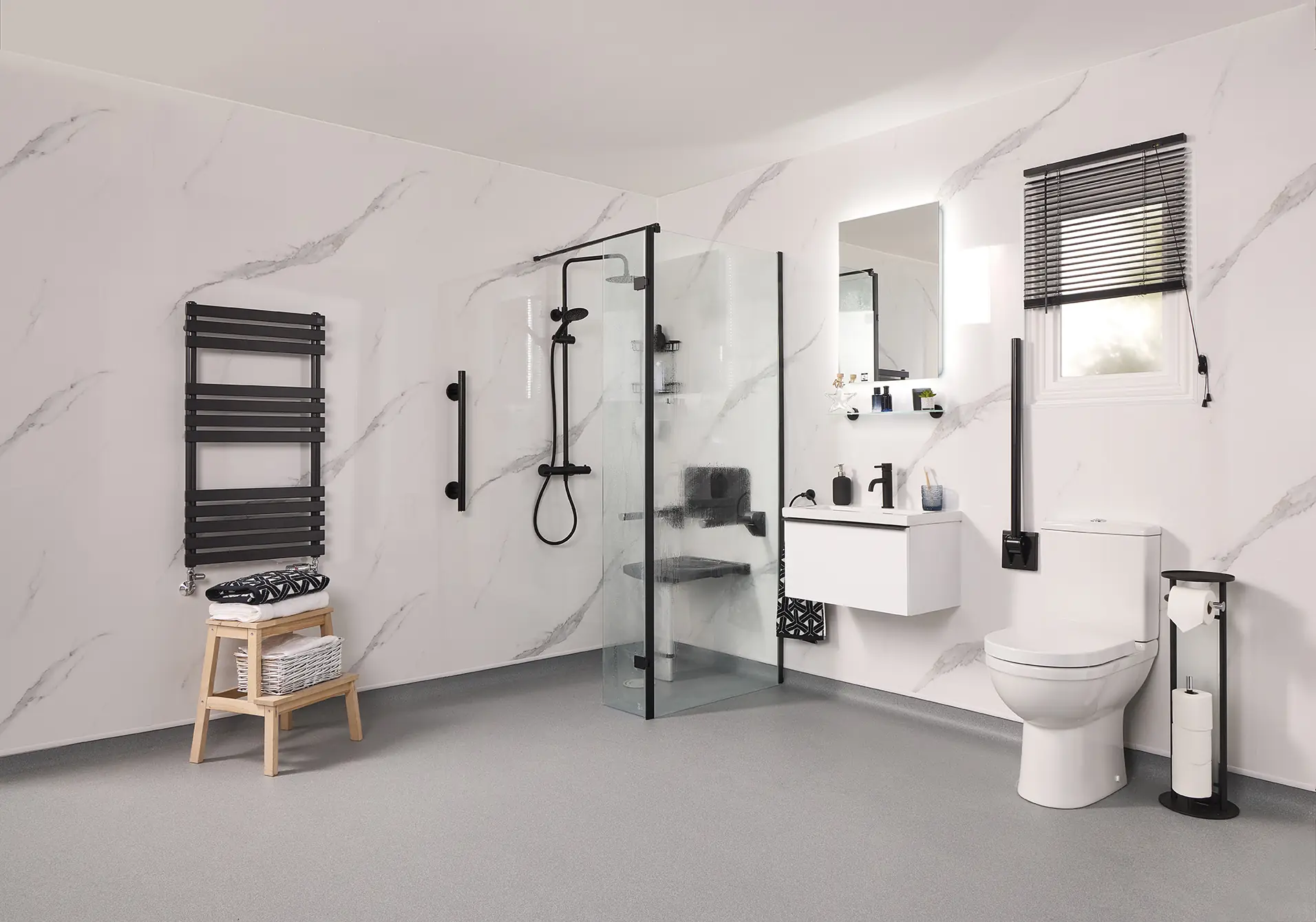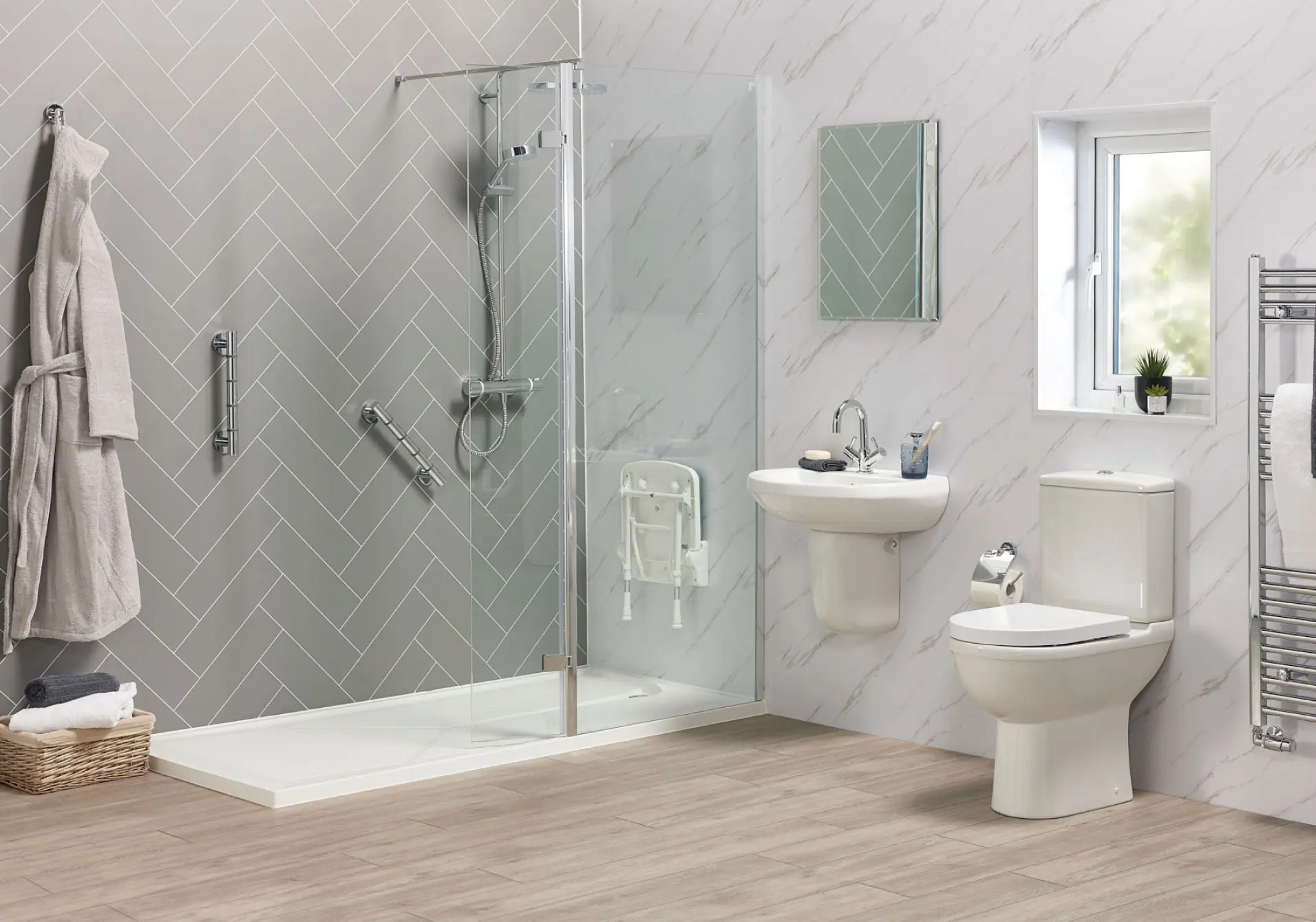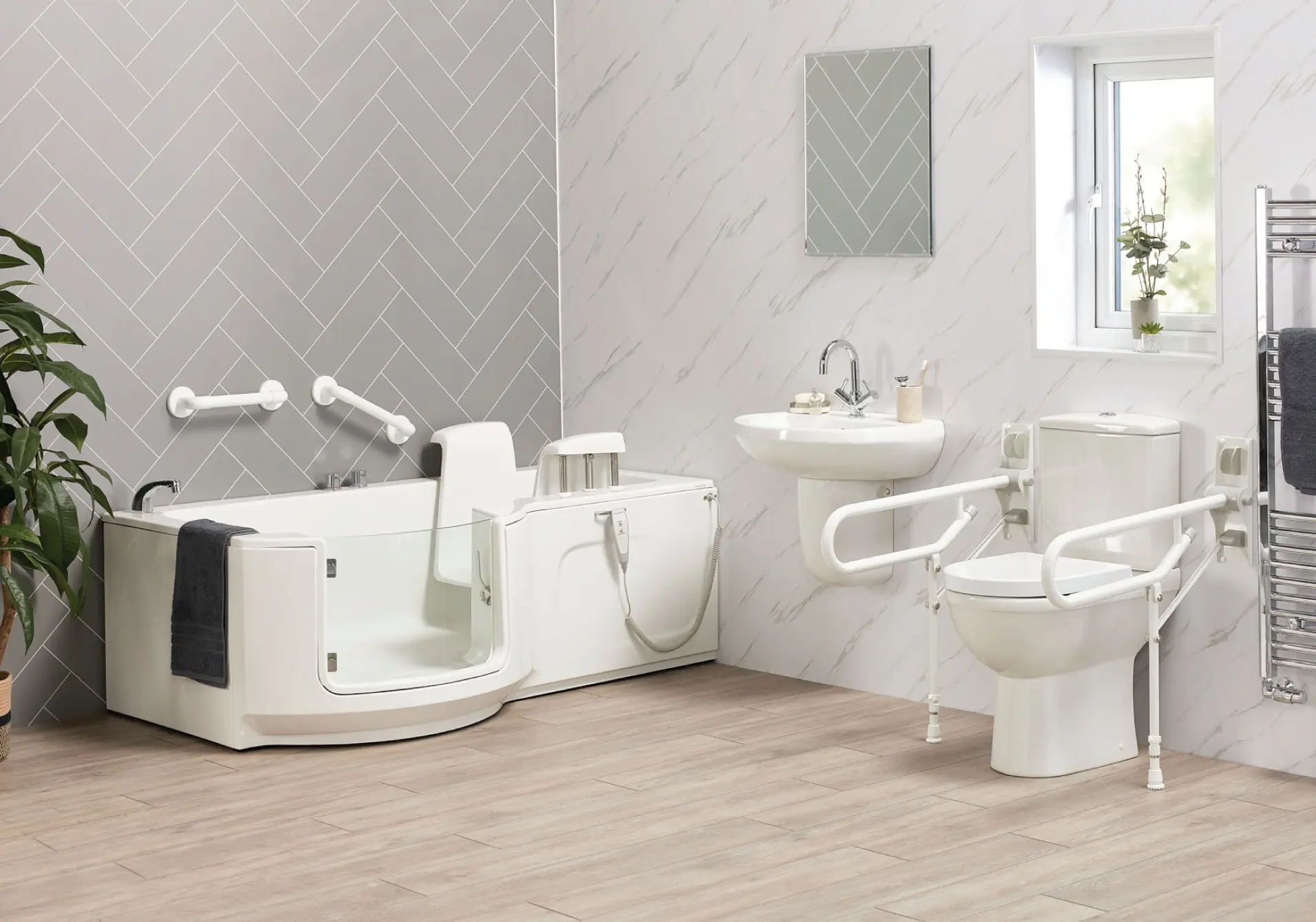Bathing is a daily ritual that extends beyond mere hygiene—it’s a moment of relaxation, rejuvenation, and personal well-being. For individuals with mobility challenges, the conventional bathroom setup can pose significant obstacles. Disabled baths, tailored to meet the unique needs of those with physical limitations, emerge as a solution that not only addresses accessibility concerns but also fosters a sense of independence and dignity. Let us understand the features, benefits, and considerations surrounding a disabled bath, focusing on how these purposeful installations redefine the bathing experience for individuals.
Understanding disabled bath aids
Understanding disabled bath aids requires familiarity with various equipment and modifications. These designs aim to make bathing safer, more comfortable, and accessible for individuals with disabilities or limited mobility. So, here are some common disabled bath aids:
Grab Bars
Mount sturdy bars on the bathroom walls near the bathtub, shower, or toilet for typical placement. They provide support and stability when entering, exiting, or moving around the bath area.
Shower Chairs or Benches
Shower chairs or benches facilitate comfortable sitting for individuals in the shower or bath. They come in various styles, including fixed, foldable, and adjustable height options.
Transfer Benches
Transfer benches span the edge of the bathtub, allowing individuals to sit on one side and safely slide into the bath area without having to step over the tub wall.
Walk In Bath Tubs
Walk in bath tubs feature a door that opens and closes, enabling individuals to walk directly into the tub without stepping over the edge. Moreover, they often come with built-in seating, handrails, and non-slip surfaces.
Handheld Showerheads
These showerheads have a flexible hose and can be easily maneuvered to provide targeted bathing while sitting. They offer greater control and accessibility compared to fixed showerheads.
Raised Toilet Seats
These seats elevate the toilet’s height, making it easier for individuals with mobility issues to sit down and stand up.
Non-slip Mats and Treads
Placing non-slip mats or treads inside the bathtub or shower can help prevent slips and falls by providing traction on wet surfaces.
Water Temperature Controls
Installing thermostatic or anti-scald valves can help regulate water temperature to prevent burns or discomfort during bathing.
Bath Lifts
Bath lifts help to lower and raise individuals into and out of the bathtub. They provide support and assistance for those who may have difficulty getting in and out independently.
Handrails and Grab Rails
Handrails and grab rails are installed along the walls or beside the bathtub. They provide additional support and stability for individuals moving around the bathroom.
Benefits of Disabled Baths
The benefits of a disabled bath, also known as an accessible or adapted bath, are numerous and cater to individuals with disabilities or limited mobility. Here are some key benefits:
Improved Safety
Disabled baths are designed with safety features such as non-slip surfaces, grab bars, and low thresholds, reducing the risk of slips, trips, and falls during bathing.
Enhanced Accessibility
These baths are specifically designed to be accessible for individuals with disabilities, making it easier for them to enter, exit, and maneuver within the bath area. Features like walk-in tubs or transfer benches provide alternatives to traditional bathing methods that may be difficult for those with mobility challenges.
Increased Independence
Disabled baths allow individuals to bathe with greater independence, reducing the need for assistance from caregivers or family members. Features like bath lifts or handheld showerheads empower individuals to manage their bathing routines more autonomously.
Comfort and Relaxation
Many disabled baths come equipped with features such as built-in seating, therapeutic jets, and adjustable settings, providing a comfortable and relaxing bathing experience. This can contribute to overall well-being and promote relaxation and stress relief.
Promotion of Hygiene
Accessible baths make it easier for individuals with disabilities to maintain personal hygiene, as they can bathe more comfortably and effectively without struggling with inaccessible or unsafe bathing environments.
Prevention of Health Issues
By reducing the risk of accidents and injuries associated with bathing, disabled baths help prevent health complications and hospitalizations, promoting better overall health and quality of life for individuals with disabilities.
Adaptability to Changing Needs
Many disabled baths are designed with adjustable features or can be modified over time to accommodate changing mobility needs. This adaptability ensures that individuals can continue to use their baths safely and comfortably as their abilities evolve.
Inclusion and Dignity
Accessible bathing facilities promote inclusivity and respect for individuals with disabilities, allowing them to participate fully in activities of daily living with dignity and without barriers.
Using a Disabled Bath: A User-Friendly Process
The process of using disabled baths is designed to be straightforward, ensuring that individuals with varying degrees of mobility can bathe with autonomy and dignity. Here’s a brief overview:
Entry
The low-threshold entry facilitates easy access. Users can enter the disabled bath without encountering obstacles, ensuring a smooth transition into the bathing space.
Seating
Integrated seating provides a comfortable position for bathing. Users can sit securely, eliminating the need for strenuous physical effort or assistance during the bath.
Controls
Accessible controls allow users to adjust water temperature and flow easily. The user-friendly design ensures that individuals with limited dexterity can operate the bath independently.
Hydrotherapy (Optional)
If equipped with hydrotherapy features, users can activate therapeutic water jets to enhance relaxation and address specific health concerns.
Exit
Exiting the disabled bath is as simple as entering. The low-threshold design and safety handrails provide the necessary support for a secure exit.
Elevating Bathing Experiences with EA Mobility
At EA Mobility, we recognise the importance of creating tailored solutions that empower individuals with mobility challenges. Our range of disabled baths combines safety features with luxurious design, ensuring that the bathing experience remains a source of comfort and enjoyment. If you’re considering enhancing the bathing environment for yourself or a loved one, our team at EA Mobility is ready to assist. Contact us today at FREEPHONE 0808 2812665 to explore our selection of disabled baths and discover how we can redefine the bathing journey with safety, accessibility, and indulgence.




